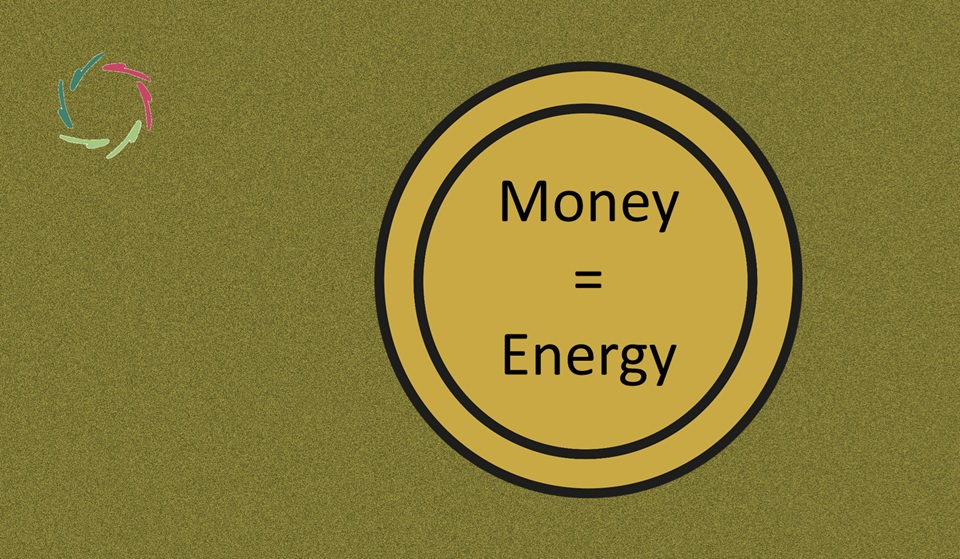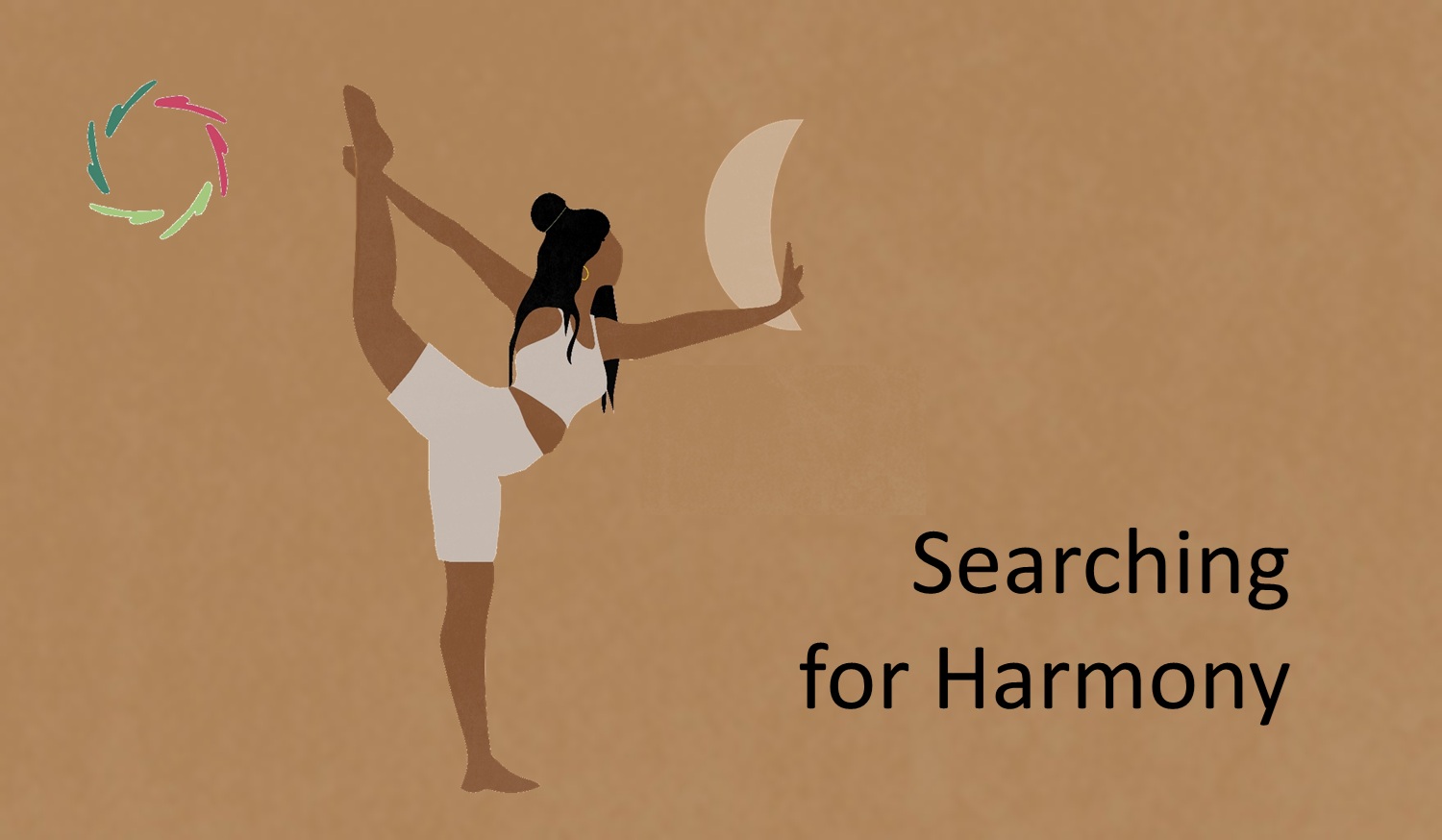Money = Energy

Money is energy in potential form. Just like electricity or wind, its meaning lies in the flow. When it moves, it shapes the world — but whether it nourishes or destroys depends on what it serves.
This reflection looks at money as energy that can either dissolve into waste or blossom into meaning. The question is how deeply it flows.
Energy and meaning
When energy moves without direction, it dissolves into waste — motion without purpose, noise without harmony. Meaning is what organizes energy, just as gravity holds the planets in orbit. It prevents chaos.
If meaning fades, even vast flows of money lead nowhere. The result is busy emptiness. As described in From Deep Meaning to Post-Capitalism, monetary value becomes real only through connection to deeper purpose.
Money, in this view, is potential energy: a symbol of stored trust, ready to move. When it flows with meaning, it nourishes. The ethical question is ‘toward what.’ The Meaning Economy expands on this: real wealth begins where money serves meaningful creation rather than mere accumulation.
Power and the control of flow
The saying ‘money is power’ conceals a deeper reality: power lies in controlling the flow of energy. Whoever directs the movement of money, labor, or attention shapes the outcome of events. This control easily becomes self-reinforcing — more control brings more wealth, and wealth reinforces control.
Yet control without depth soon dries the stream. Power, if it forgets its meaning, becomes sterile. Genuine strength lies in guiding the current wisely, so that it keeps nourishing life instead of draining it.
Two examples
History offers a vivid case study. Colonialism was a vast enterprise of energy control: resources, labor, and meaning all flowing one way — toward the centers of power. Slavery, taxation, and monopolized trade routes ensured that energy moved but did not circulate. Local elites, maritime routes, and trade posts served as the arteries of a one-sided system. It created wealth, yes, but hollow wealth — an outward abundance and inward impoverishment.
In today’s attention economy, the control of flow has shifted from physical to mental territory. Attention itself has become a currency — the new gold of the digital age. When it’s captured and monetized without meaning, the human being becomes a mined resource. The digital colonialism of the present harvests inner energy rather than raw materials.
The wish to control energy flow is as old as human organization. This same pattern of control reappears in subtler forms across history, as explored in The Many Faces of Colonialism — From Empire to Ego. Colonialism, in that sense, is energy control gone astray — when flow and connection turn into domination.
Motivation is the deepest energy
Behind every economic motion lies motivation — the human force that sets things in motion. Volunteers and paid workers both contribute energy, yet from different depths. External rewards buy time and skills; inner motivation gives life and heart. You can pay for hands, not for hearts.
Deep motivation, as explored in Deep Motivation – Read & Do, is energy drawn from within — self-renewing, contagious, and aligned with meaning. When this energy flows, less money is needed; the work becomes its own reward.
The ocean beneath all motivation
Behind every flow of motivation lies a vast inner ocean of energy that never runs dry. The feeling of having little energy often means not being in touch with these deeper layers, not that the energy itself is gone. As described in Deepest motivation is an ocean of energy, this depth is not something to dive into as if it were elsewhere; it is who we are already.
At the surface, life shows its forms — actions, goals, money, recognition — yet these carry no true source of power by themselves. The real energy moves below, where meaning takes shape before words exist. When we connect with that ocean, even simple actions become full of aliveness. When we disconnect, we may still move, but only with borrowed strength. Without this connection, even the most compassionate economy remains a surface current. With it, the whole system breathes from within.
Philanthropy — the circle of energy
Philanthropy shows how different forms of energy can harmonize. Donors give financial energy; volunteers offer motivation and time; organizations provide structure; and beneficiaries give back by using what they receive with care. Everyone involved becomes an energy donor of some kind. To receive well is also to give — by transforming received energy into new meaning.
True philanthropy, guided by openness and respect, mirrors the healthy flow of nature.
From Adam Smith’s sympathy to AURELIS Compassion
Adam Smith is widely regarded as the father of classical economic thought, which later evolved into capitalism. His insight in The Wealth of Nations (1776) – that individuals, acting in self-interest, unintentionally serve the collective good – was revolutionary for his time. Yet he already saw that emotion keeps the social world moving. In his earlier book, The Theory of Moral Sentiments (1759), he called it sympathy — our ability to imagine another’s feeling. It was a remarkable insight for his time, but still limited to mirroring.
Compassion goes further. It’s not merely feeling for another but with another — a resonance that joins inner worlds. Sympathy keeps society humane; Compassion makes it fully human. If Smith’s invisible hand guided markets, Compassion is the invisible heart that can keep them alive.
The ‘physics’ of power
If Einstein had been an economist, he might have written E = mc² — Energy equals money times control squared.
Control amplifies energy, yes, but also risks burning it out. The AURELIS refinement could be E = mCo² — money times Compassion squared. Control accelerates energy; Compassion harmonizes it. Energy that flows through Compassion becomes light; without it, the world goes square. That little smile reminds us: what truly matters most is not acceleration but direction.
Money as the shadow of meaning
Money can also be seen as the shadow of meaning. When the light of Compassion and purpose shines on life, money appears naturally — a useful reflection.
But the shadow is not the light. Chasing the shadow leads to distortion. When people worship the shadow, they forget the source. The wiser choice is simple: tend to the light, and the shadow will fall where it belongs.
A glimpse of the future
If money is energy, what happens when energy flows freely? The future may hold a state where money, as such, becomes unnecessary — as imagined in Are You a Trekkie?. In that vision, automation and abundance make exchange effortless, and people act from a single motivation: human growth.
When energy moves without friction and every action serves a meaning, guided by Compassion, money can support art, science, healing, education — all ways in which inner strength becomes outer creation. Money, then, is super when used Compassionately. It magnifies what is already alive within us. The richer the heart, the richer the flow.
With Compassion, the world turns round; without it, it goes square.


